Elephants in the newly proclaimed Luenge-Luiana National Park in Angola recovered well from over an entire generation of war that this country has endured. This area, previously UNITA occupied, has had time to adjust, and the proclamation of the park in May 2012 was a welcome surprise. But what about poaching? Written by: Mark Paxton
For many of us, this had shown that the KAZA concept could now finally actually be gaining ground, and we were all looking forward to this over nine million hectare park being managed as the star park in Angola. But alas, this seems not to have been the case, and interference from uncontrolled human settlements along the Cuito River boundary has resulted in escalating large-scale poaching incidents in the neighbouring park, targeting mostly the elephants.
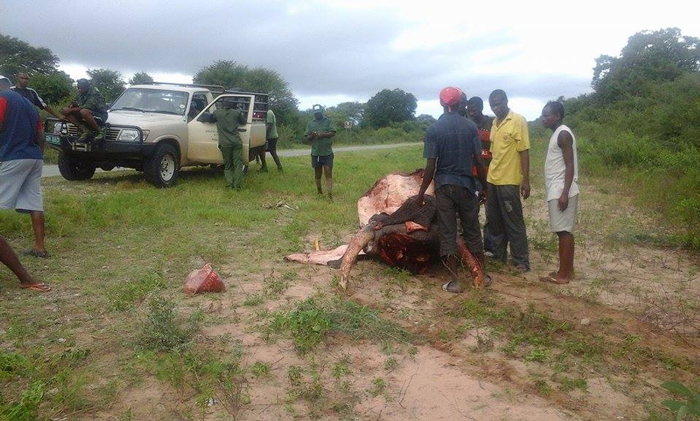
Two years ago, for the first time in decades, we saw elephants on the banks of the Okavango River in the Shamvura area where I live. Everybody in the area saw this as a positive and encouraging sign, but I was sceptical. I have been involved in conservation and park management all my life, so I could see this was a sign that the elephants in the park’s interior were being persecuted. As a result of this pressure, I could understand that they were forced to seek refuge and sanctuary further south towards the Okavango River areas, which previously they would only visit occasionally.
It was one of these pressured groups of between 20 and 40 animals that were attacked by poachers in the Kashira area recently. The incident happened at around 17h00 on Saturday, 23rd July, and was first reported to me by my staff and then by our nearest neighbours. I then received a call and was asked how to deal with this incident. I immediately contacted several top senior members of Nampol (the Namibian Police Service), MEFT (The Namibian Ministry of Environment, Forestry and Tourism) and then the regional commander of the Angolan Border Police in the Cuando/Cubango Province, Commander Mino. I also alerted several media contacts and, through other contacts, the Cuando/Cubango province governor and the National Director of the Ministry of Ambiente in Angola.
Yet, despite this prompt and widespread reporting to multiple authorities from both countries, it was only the following day that the scene was investigated. They found carcasses of the slaughtered elephants with the tusks removed. Two other wounded animals were tracked but not found. The tusks from the slain animal had been transported that night over the river into Namibia, where the authorities are apparently trying to trace the tusks and poachers.

This is not the first poaching incident I reported in this park. In the last four years, I have reported four hippo and four crocodile poaching incidents, as well as many incidents of elephant and other wildlife meat being sold on the Namibian side of the river.
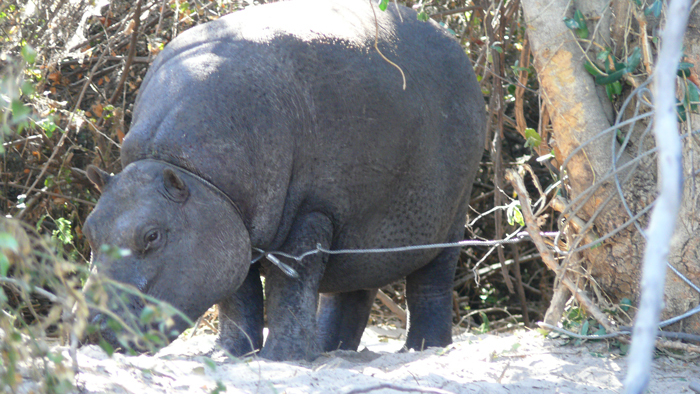

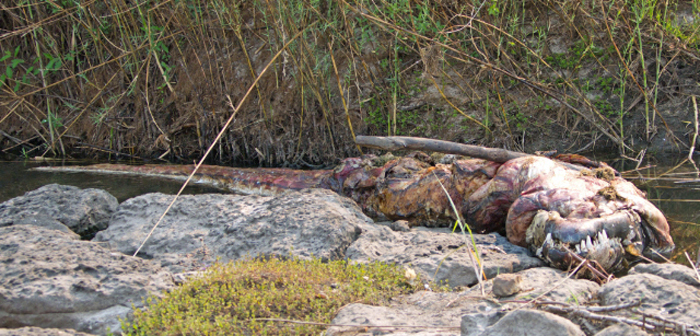
The river area is also constantly under threat from illegal fishermen and commercial fishing operations using numerous large nets on Angolan Government boats, apparently with the knowledge and permission of the administrator from Ndirico in Angola.

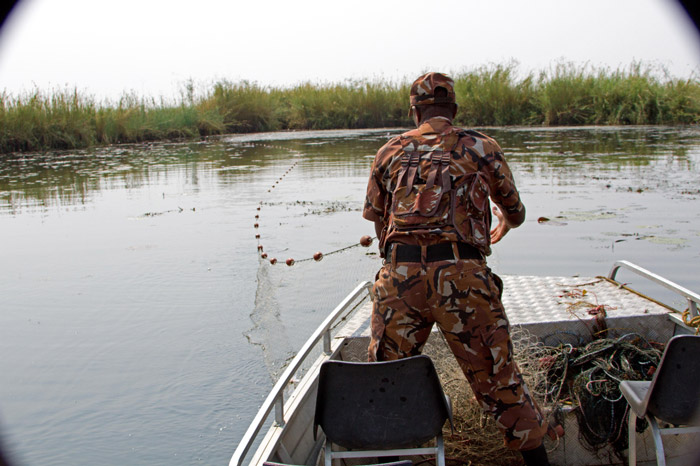
For years, the Fisheries Inspectors and MEFT Officials have refused to react to these reports, claiming that when Angolans are involved and any activity on the Angolan river bank is reported, they are not entitled to follow up and prosecute. I’ve become quite accustomed to the well-known excuse of “our hands are tied.”

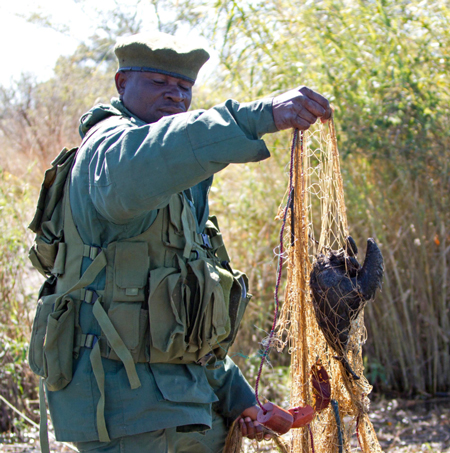
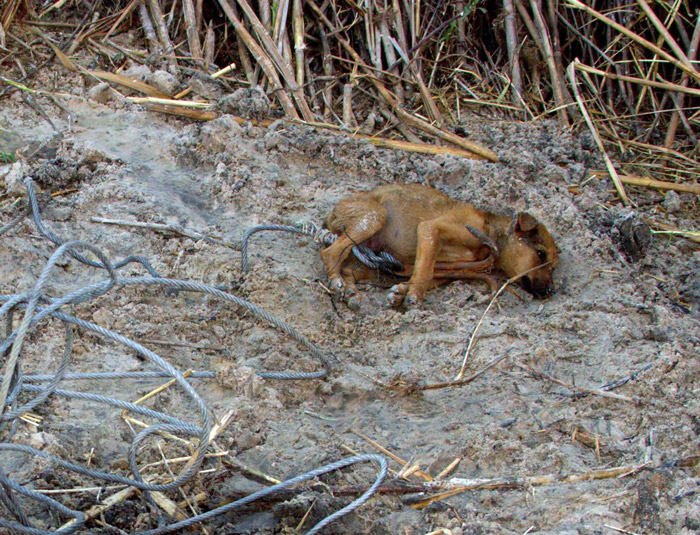
Strangely, Nampol does not use that excuse, and I have managed many successful anti-poaching river patrols with the Nampol Border Police at Evero Border Post nearby. Several recent meetings with Angolan authorities confirm that they are only too willing to help but have never been approached to do so. I continue to get excellent help from Nampol, which has no problems involving their Angolan counterparts.
The poaching activities along this park’s southern border are beginning to severely impact the Namibian tourism sector along the Okavango River. One of the recent hippo poaching incidents reported in this area occurred during an international fishing competition that was held on the river. Several boats were in the immediate vicinity where the incident took place and found themselves in the way of flying bullets, forcing them to immediately leave the area for fear of being shot. Obviously, word of the experience has spread, which does not do the area any good.
I understand that the Luenge-Luiana National Park has established a Rangers Corp within the park, which has a relatively well-equipped base station. I also understand that they are under-equipped and need some support and training before they can be as effective as they should be. I chair the Namibian Chapter of the GRAA (Game Rangers Association of Africa), and we are hoping to get involved in Angola with our next AGM being there. We hope that, with our resources, we may well be able to offer the necessary assistance to give this park much-needed professional support.
To comment on this story: Login (or sign up) to our app here - it's a troll-free safe place 🙂.![]()






